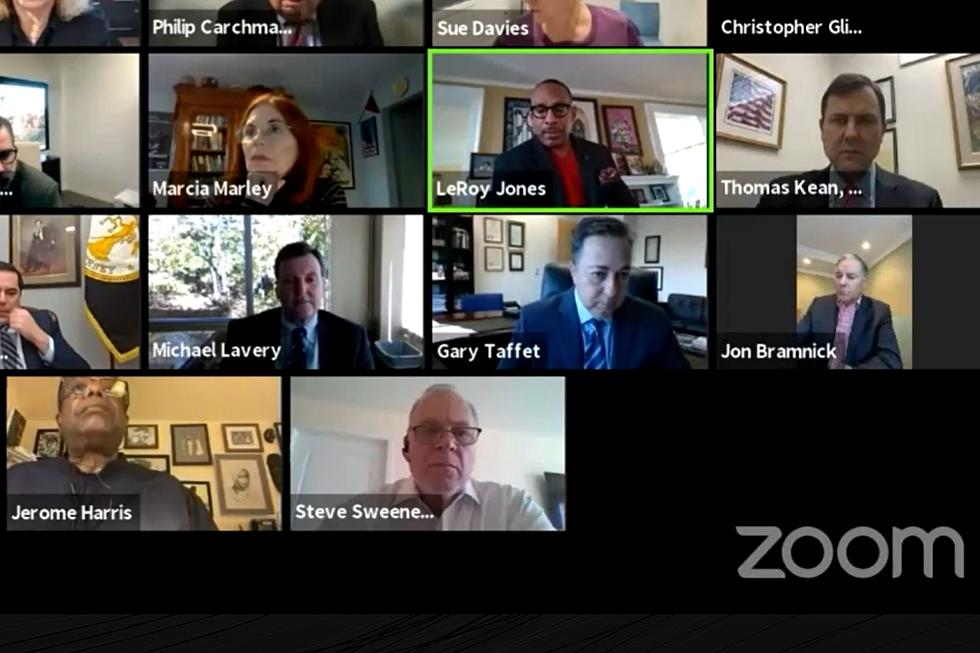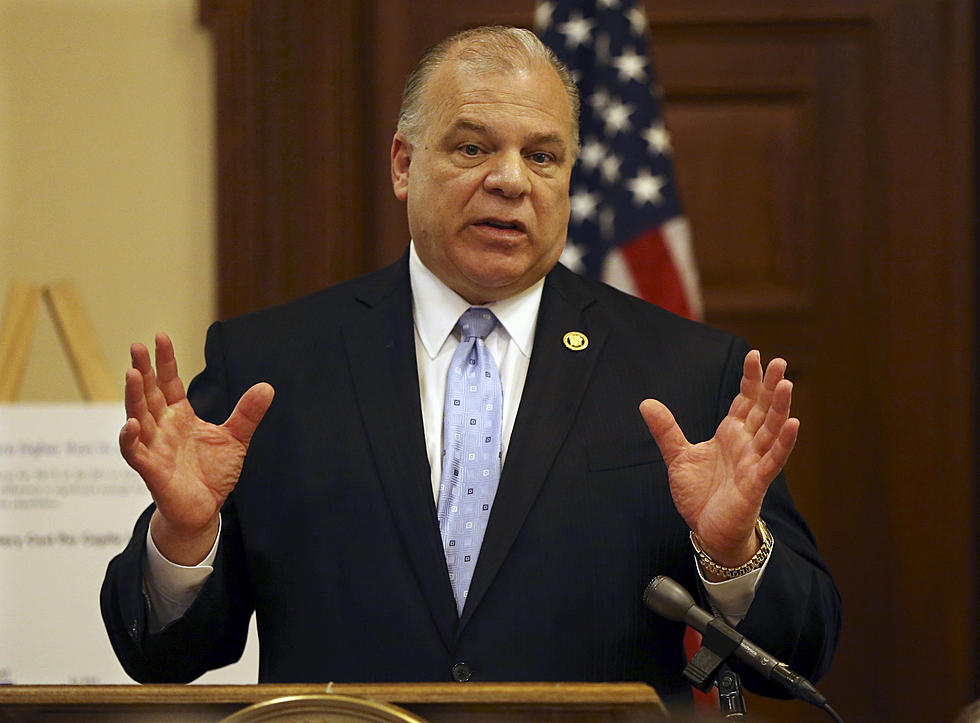![Will Governor Christie’s Education Reforms Move in Lame Duck? [AUDIO]](http://townsquare.media/site/385/files/2011/10/statehouse-back-300x169.jpg?w=980&q=75)
Will Governor Christie’s Education Reforms Move in Lame Duck? [AUDIO]
Governor Chris Christie says the lame duck session is the time to advance his education agenda so a child's zip code doesn't dictate their academic destiny, but his proposals don't have the full backing of State Senate President Steve Sweeney.
Christie's education transformation task force released its preliminary report last month.
The Governor is proposing merit pay to reward good teachers, tenure reform to make it easier to fire bad ones and limits on educators' seniority protections. The proposals must be approved by the legislature. Sweeney isn't full on board.
"Tenure reform is extremely important," says Sweeney. "What's it's going to look like, obviously the devil's in the details…..seniority is absolutely, in my mind off the table."
Sweeney supports merit pay for entire schools, not teachers. He explains, "With the individual rewarding of a teacher there's so much politics that can play into it."
Christie calls the initial report a strong first step in the process to develop a new accountability system for New Jersey schools, and to reduce the regulatory burden in order to make it easier for schools and educators to focus their efforts on innovation and results for children. These recommendations, to be followed by a final report submitted by the Task Force on December 31, 2011, focus on four Building Blocks for Success in New Jersey's Schools, including reforms to address performance and accountability, academics and standards, talent, and innovation in New Jersey's education system.
"This report confirms that we need to provide a new accountability system that works for our educators and students, and that sensibly moves us toward a system that values educational results over bureaucratic red tape," says Christie. "Every aspect of our education system must be centered around ensuring that every one of our children has the opportunity to get an effective education that prepares them for a successful future. These recommended changes to our accountability system mark a first step toward additional education reforms that we will be pursuing to modernize the fundamentals of our education system and our schools."
The report provides recommendations to reform the accountability system in state education by moving to a single, streamlined system, focusing on student learning and eliminating deficiencies in the two current accountability systems of QSAC and NCLB for New Jersey schools. The changes, which would be sought through a federal waiver of NCLB and statutory changes, will replace the current accountability scheme in New Jersey with a system more meaningful in its measures and assessments and less administratively burdensome for districts. The initial report represents a first step towards this reform, with recommendations that outline key challenges with the existing system and guidance for moving forward with the development of a new system.
The report also includes 45 specific recommendations to reduce red tape in New Jersey's public education system, changes that will help schools to streamline their operations and focus every possible resource on critical priorities like student learning and performance, rather than compliance. The result will mean schools are less focused on regulatory compliance and more focused on efforts and innovations that help all of New Jersey's children receive the great education they deserve.
In April the Governor sent a seven-bill package of education proposals to the state legislature.
"These reforms will reward great teachers through better pay and career paths, allow us to identify the struggling teachers and get them the help they need, and put in place a multiple measured evaluation system that will provide an avenue to remove the bad teachers who are not getting results in the classroom" Christie said.
Specifically, the group of seven bills submitted to the legislature by Governor Christie calls for:
Implementation of a multiple measured statewide evaluation system by the 2012-2013 school year that requires observation and evaluation of all educators at least twice per year with summative evaluation at the end of the school year using the rating categories of highly effective, effective, partially effective, or ineffective.
Tenure attainment with recommendations for tenure eligibility only after four years of service and after ratings of "effective" or "highly effective" have been received for the proceeding three years with guidelines for lesser ratings. Tenure status is lost after an evaluation as ineffective for one year or partially effective for two years.
Reforming laws governing reductions in force ("Last In, First Out") so that any layoffs are based on effectiveness -- not seniority -- and determined by an evaluation system established by the Commissioner of Education.
Mutual consent that calls for agreement by both the principal and teacher on all teacher assignments to schools. Where a principal does not consent to a tenured teacher's placement in his or her school, that teacher will continue to receive compensation for 12 months while searching for an assignment in the district, after which he or she will be placed on unpaid leave.
Reforming teacher compensation to focus on an educator's demonstrated effectiveness in advancing student learning, as well as whether the educator is teaching in a failing school or is teaching in a subject area that has been identified as a difficult-to-staff subject area.
Due process changes to eliminate a provision requiring a teacher against whom tenure charges were filed to begin receiving full salary and benefits after 120 days of start of the process as well as implementing a firm deadline requiring Administrative Law Judges hearing tenure revocation cases to render a decision within 30 days.
Allow for school districts to opt out of the Civil Service System.
Two of the cornerstones of Christie plans are merit pay for teachers and the elimination of seniority protections. State Senate President Steve Sweeney objects to both proposals and say he won't post either for a vote.
"I've never been a fan of merit pay. I don't believe in it," said Sweeney last month. "Sometime when you have merit pay, you have the ability to have favorites. A real hard teacher gets less money than another teacher because he or she is not the favorite."
Sweeney and other critics say seniority protections are needed to protect older teachers from being laid off in order to save districts money on retirement costs.
Christie says, "We've seen pronouncements by me and by him about things we would or wouldn't do and then when you get into negotiations you realize if you want get something done maybe you've got to change a little bit."
More From New Jersey 101.5 FM









